Gabon: Manatee Training Workshop
From September 2-6 I held a manatee training workshop in Lambarene. There were 12 participants from 6 organizations (including Oganisation Ecotouristique de Lac Oguemoue (OELO, Gabonese NGO), World Wildlife Fund, Gabon Fisheries, Gabon Water and Forestry, University of Dschang, Cameroon and African Marine Mammal Conservation Association, Cameroon). Five of the participants were women, the highest number I’ve ever had in a workshop to date. Lectures covered manatee biology and evolution, field techniques (boat and village interview surveys, sampling from carcasses and live manatees, environmental sampling, etc.) and presentations by participants about the work they have already started. We also had two boat days to practice taking environmental data, surveying for manatees and feeding sign, and village interviews. I have to say, this was one of the best groups I’ve ever trained- they asked great questions, everyone was very positive and engaged, and everyone really seemed to enjoy hanging out together which I hope will encourage them all to stay in touch and discuss their work (they chose to eat lunch together as a group every day, people went out for beers together in the evenings…). Believe me, this doesn’t always happen, so it was really nice that it did this time!
I’d especially like to thank Heather and Cyrille from OELO who helped arrange most of the logistics including the meeting room at Direction de la Peche (the Fisheries office), the boat trips, the food for the breaks and packed lunches for the boat days, and even the coffee maker. WWF also generously loaned us their Power Point projector for a week. Here are some photos from a very productive week!
Rodrigue giving a presentation about his manatee survey work in Lake Ossa, Cameroon
Cyrille from OELO giving a presentation about their work in the Ogooue lakes and market surveys to document manatee bushmeat in Lambarene.
The measurement exercise during necropsy training is always a fun event (even if we have to use an inflatable dolphin because I can’t find a life-size inflatable manatee). Here Aristide explains the measurements, since he had previous training at the Marine Mammal Pathobiology Lab in Florida.
Solange and Regis practice taking a standard measurement (snout to umbilicus length, for those of you who are wondering! 😉
Aristide, Arlette and Samuel taking a Secchi disk measurement (which measures water clarity) on our first boat day
Stephanie taking depth and temperature measurements
Excellent manatee habitat near Lac Ezanga. Unfortunately we didn’t see any, but we did find lots of feeding sign in the grass and were also able to see hippo feeding sign, so the participants could compare the two different types. What’s the difference? Hippos tend to crop all the grass like a lawnmower, while manatees tend to select particular stems and crop individual leaves. Manatee also uproot plants such as cattails and papyrus to eat the roots.
Looking at manatee feeding sign in a common grass along the entrance to Lac Ezanga (Vossia cuspidata, or Hippo grass)
The group in the boat looking for manatees
At one point the boat got badly stuck in the mud, and the guys all got in the water (well, mud up to their knees and a couple inches of water) and worked for almost an hour to push the boat across a super shallow lake. Despite it being very difficult, they gallantly would not allow any of the women to help and laughed the entire time…such a great, positive group! Rodrigue kept shouting “Yes! THIS is fieldwork!”
Rodrigue and Regis covered in mud afterwards… but still laughing
Cyrille took us to a village where we were able to see an old skull and some ribs from a manatee hunted a long time ago. After Cyrille explained that I was doing studies, they allowed me to collect a piece of bone for genetics and an ear bone for age and diet determination. (Photo courtesy of Heather Arrowood, OELO)
Lunch group
And finally, here’s the whole group on the last day with their new posters and t-shirts. Congratulations to the newest group of trainees on a very successful workshop! I have high hopes for future manatee work in the region!

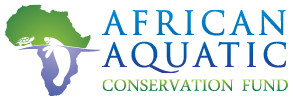
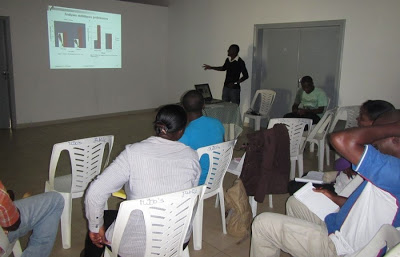
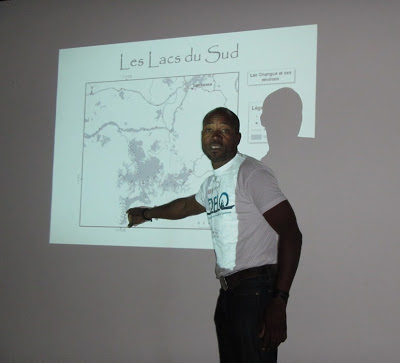
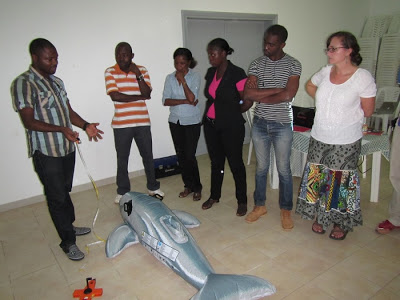
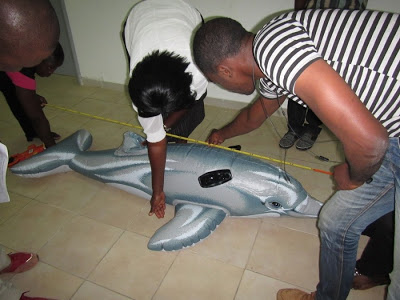
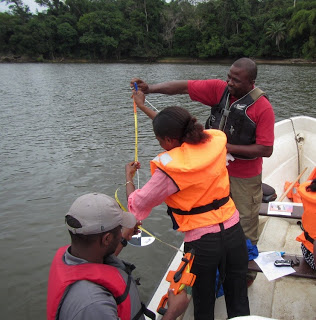
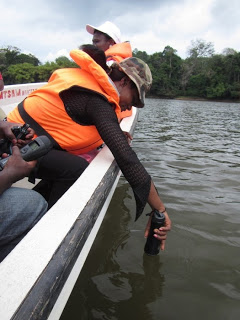
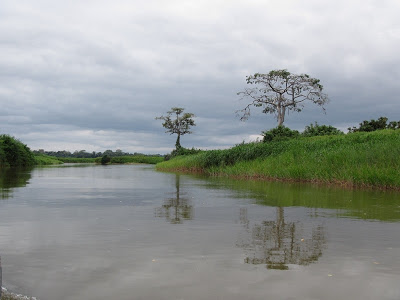
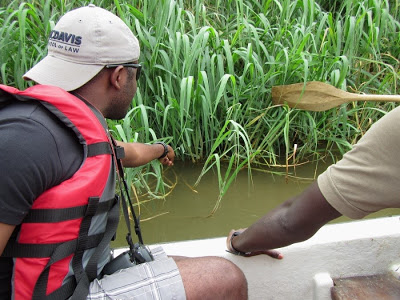
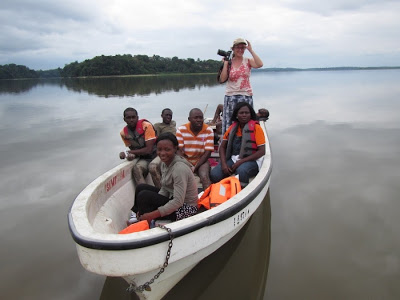
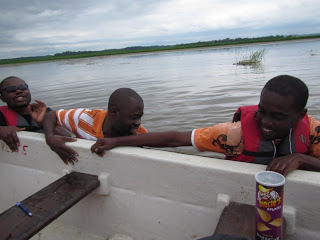
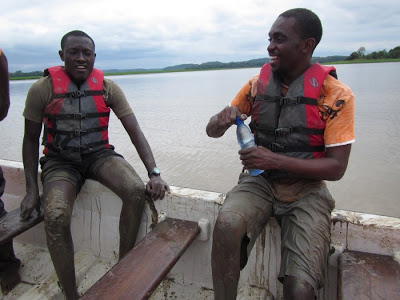
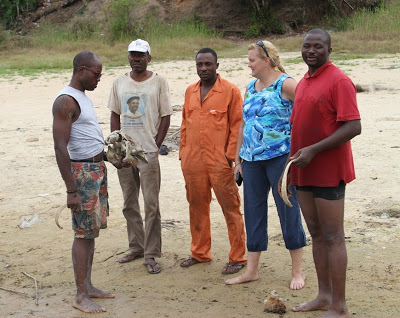
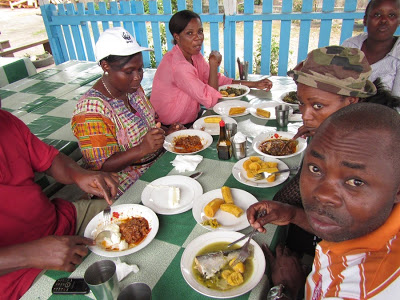
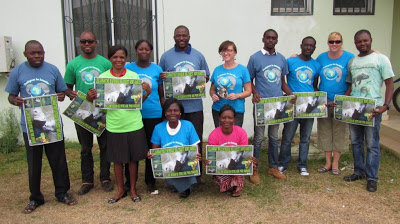
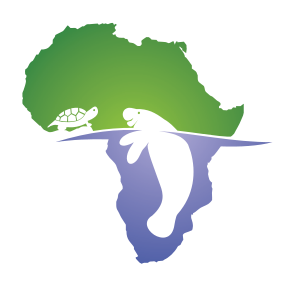
Ruth Leeney
September 14, 2013 at 12:10 pmThis looks great Lucy! I am particularly impressed to see so many women on your course and hope I can get some more balance in the sex ratios in my future workshops too. Also really impressive to see the quality of research being done in the region, not only you but by your colleagues.
Anonymous
September 20, 2013 at 5:41 pmHey Lucy!
I finally am checking out your blog. All I have to say is that you are such an INSPIRATION with all the wonderful work that you are doing for manatees and their conservation. Makes me want to work harder to do the work I'm doing in Malaysia. 🙂
Keep up the good work!
Louisa